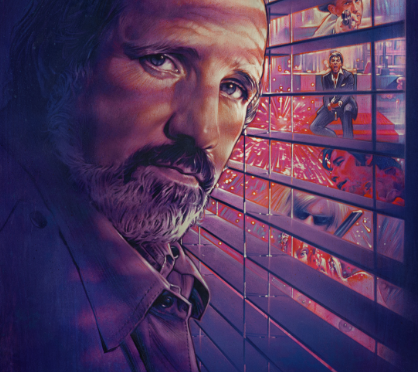When it comes to the topic of genius and its exploration in film–whether documentary or scripted narrative–the crux of the noun always tends to boil down to one element: the “madman” in question must devote his entire life to his craft, putting the personal on the back burner. The thoroughness, the intensity with which Brian De Palma talks about his filmography in the Noah Baumbach/Jake Paltrow-directed De Palma all comes back to this very notion.
As De Palma goes film by film, starting with Murder a la Mod, released in 1968 while De Palma was still fresh from his college days at Sarah Lawrence, the director revisits his artistic evolution–one that always goes back to the notions of betrayal and manipulation. His alliance with a young actor called Robert De Niro gave him a boost with his first two major films, Greetings and Hi, Mom! With his independent film success firmly established in New York by the time Dionysus ’69 came out, De Palma made the move to Hollywood in 1970 to make Get To Know Your Rabbit, starring, notably, Orson Welles, who De Palma had to shoot countless takes of thanks to Welles’ inability to remember his lines. In spite of the ego-crushing experience of being chastised for his ideas and dialogue by his other leading man, Tommy Smothers, De Palma was, at the minimum ingratiated into the harsh nature of the Hollywood juggernaut. Get To Know Your Rabbit then established the string of movies De Palma made through the studio system, including Sisters, Phantom of the Paradise, Obsession and Carrie. The unexpected success of Carrie finagled De Palma an unprecedented budget for The Fury, which De Palma admits possesses all the marks of technical and visual goodness, but is not his favorite film “by a long shot.” Returning to his more independent roots in 1980, De Palma conceptualized Home Movies in an unprecedented way: by involving the film students he was teaching at Sarah Lawrence in the entire project in order to fully showcase a hands-on approach to filmmaking, as it was De Palma’s belief that every film student should at least know how to make a low-budget movie when they come out the other side of the pipeline. The personal nature of the storyline harkens back to De Palma’s childhood, punctuated by the auteur’s own history of following around his father with a camera to catch him in the act of adultery, as well as the overt favoritism displayed toward his brother.
As De Palma hit his aesthetic stride at a time–the 80s–that seemed to perfectly fit in with what his semiotics of decadence were saying, the world was given the sumptuousness of Blow Out, Scarface and Body Double. Again, De Palma was given the highs and lows of varying degrees of confidence during this period of intense productivity. His rehashing of the films he made in the 90s, marked by the peaks of Carlito’s Way and Mission: Impossible, are characterized by an almost blasé attitude, iterating one of his final points in the documentary: directors create their best work in their thirties, forties and fifties (an ageist sentiment Madonna probably wouldn’t agree with).
Unlike many auteurs (save for Woody Allen, who freely admits to ripping off Fellini and Bergman), De Palma makes no bones about his first major influence, Alfred Hitchcock’s Vertigo–a narrative and filmic language De Palma would go on to revisit and repackage time and time again in his filmography. It is this established jumping off point at the outset of De Palma that builds on just how intensive the exploration of De Palma’s vast, near unmatched career is.
Accordingly, cinephiles will not be disappointed by the in-depth, minutiae examining nature of De Palma, a near how-to on being a rogue in cinema. But alas, as De Palma asserts, “What we did in our generation will never be duplicated.”






















[…] every color-soaked frame, it becomes evident that there is something in The Neon Demon that takes what Brian De Palma has done for most of his career and puts it on steroids, combining it with Tarantinoesque grotesquerie and […]